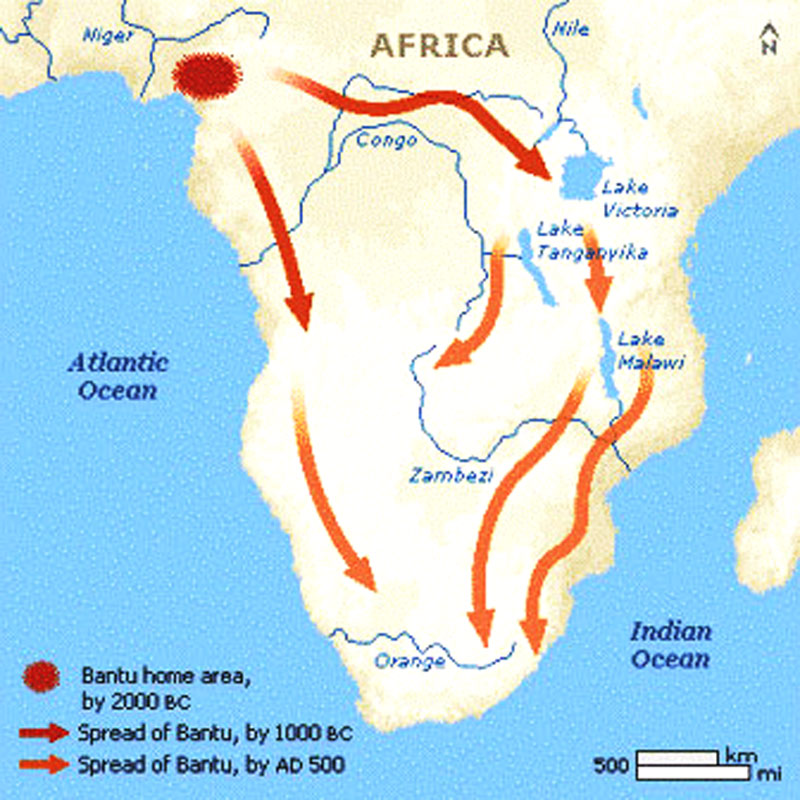 |
| I mean... it's tough not to. |
But let's rewind a second. It's Human Story today. How did Bantu-speaking people get everywhere they are today?
That turns out not to be the easiest question to answer - most of the evidence we have for the expansion at all is just the similarity between the Bantu languages. The thought process goes that if people in Cameroon, Kenya, and Cape Town are all speaking clearly similar languages, they must have been speaking the same language fairly recently. So it goes in historical linguistics; there's simply no other force that could have made them so similar from that distance. Based on linguistic reconstruction, it's pretty clear that the Bantu speakers began about 4,000 years ago in the Niger-Congo heartland, in modern Cameroon, from there expanding south and east into essentially the whole southern half of Africa, absorbing or displacing sparser hunter-gatherer populations like the Congolese pygmies and Khoisan bushmen. Unfortunately, studying the languages has pretty limited ability to fill in any of the juicy details about how or why the expansion happened. This is the point in the discussion where linguists usually turn things over to geneticists and archaeologists, but their findings are... mixed.
The preponderance of evidence makes on thing clear - this was largely a movement of people, not just language. Genetic evidence suggests that populations in Bantu zones were almost completely replaced, although pygmy populations in central Africa retain the genetic background of pre-Bantu ancestors. But how were the Bantu speakers so successful at sustaining densely populated communities where their predecessors failed?
Livestock herding might have played a role in population growth and territorial expansion - people who keep cattle are able to sustain larger families, and are constantly sent in search of new grazing land. Indeed, Bantu peoples are largely animal pastoralists while the pre-Bantu populations were strictly foragers, and it was once thought that pastoralism was the cause of the Bantu expansion and migration. Emerging archaeological evidence tells us that the practice of keeping cattle wasn't part of the original Bantu lifestyle, though - it was picked up from groups in southern and eastern Africa who already kept animals - so it can't explain the original impetus for growth. There goes that theory.
The unfortunate truth is that it's not known exactly why the Bantu expansion occurred. And this is a common refrain in prehistoric demography - we might have good guesses as to how any corner of the world came to be ethnically and linguistically, but people without writing or metalworking are shockingly bad at leaving records of themselves. The issue is complicated more by the fact that language, genetics, and material culture don't necessarily correspond. African history is filled with people picking up one another's languages and lifestyles, so the movement cattle herding or particular genetic markers might cut across linguistic boundaries willy-nilly.
Further study might be able to spill new secrets - certainly, centuries of intense pondering is one reason why Proto-Indo-Europeans are as well understood as they are - but until time machines start hitting shelves ancient history will always involve a measure of the unknown. Maybe the most important thing about the Bantu expansion, anyway, is not how it started but how it ended up shaping modern history.
Further reading:
Wikipedia
Vansina 1979 (free, but you need to have/make a JSTOR account)
Bantu peoples


No comments:
Post a Comment